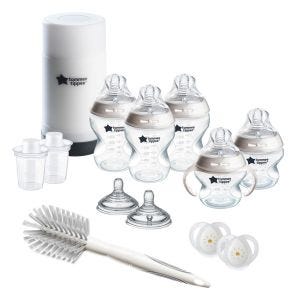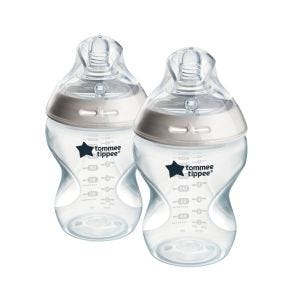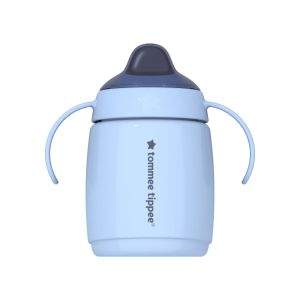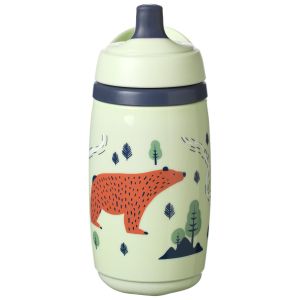
Tommee Tipps
“Just like the common cold, you are expected to live through colic, but there are several things you can try at home to improve your baby’s colic symptoms. The key is to find what works for you..."
Tips from a midwife to help you deal with colic
It’s no fun for anyone if your baby has colic. Constant crying can be frustrating and distressing, leaving you unable to relax and wondering what you can do to calm your baby.
Colic is a common problem that affects up to one in five babies. Signs of colic include:
- Intense and prolonged crying
- Baby becoming red and flushed in the face when they cry
- Baby clenching their fists or arching their back while crying
Award-winning and practicing midwife Louise Broadbridge shares her top tips to help you deal with a baby with colic. She says: “The first and most important thing to remember is that you are still a lovely, amazing parent. You haven’t done anything wrong and it is not your fault that your baby has colic.”
“Just like the common cold, you are expected to live through colic, but there are several things you can try at home to improve your baby’s colic symptoms. The key is to find what works for you. Parenting isn’t easy. Look after yourself as well as your baby and, with calm perseverance, colic will get better with time.”

Top 10 tips for dealing with colic – advice from the midwife:
Identify the problem
If your baby is crying excessively, you’ll want to know why. It may be that they’re hungry, or uncomfortable rather than colic.
Louise says: “Babies should be fed regularly, and I encourage parents to create a calm environment where they can really concentrate on feeding and bond with their baby. If your baby is fully fed and the crying stops, the problem was hunger rather than colic.”
Check for wind
Colic is associated with wind. This can be an issue whether you breast or bottle feed your baby. Wind can be upsetting and cause discomfort, but is extremely common, especially from the newborn stage to about three months, as a baby's digestive system matures. Getting rid of trapped wind may be all you need to do to calm them.
Louise says: “To wind your baby, place them over your shoulder with their bottom supported by your arm on that side. With your other hand, pat or rub their back. As your baby is stretched out and upright, this is often the easiest position to get them to burp.”
Playtime can be soothing
Babies like movement, so carrying your baby around in a sling or taking them for long walks in the pram can be comforting. Make sure they have plenty of time to just play around and move on a playmat. Playmats with mobiles are great. But babies like nothing more than looking at you so simply laying your baby down and chatting to them could do the trick.
Be careful not to over-stimulate
Babies can become unsettled by over-stimulation. Remember they are soaking up lots of new experiences in their little lives. Lots of people or noises can overload your baby’s senses, which can be stressful. Create a calm environment, especially if you think your baby is distressed by colic.
Experiment with anti-colic bottles
There are lots of bottles designed to reduce colic. Many of these have venting systems that minimise babies’ air intake, such as the Tommee Tippee Advanced Anti-Colic bottle. Try different bottles to find the one that works for your baby.
Examine your diet when breastfeeding
Following a balanced diet is key when breastfeeding. Louise says: “You can eat anything you want but if you think something you are eating is upsetting your baby try excluding that food from your diet to see if this helps.”
Consider baby massage
Colic causes severe pain in the abdomen. Gently massaging your baby’s tummy can help relieve the pressure. But seek guidance from a professional baby masseuse before you try this at home.
Try anti-colic medicine
There are plenty of over-the-counter medicines that can alleviate your baby’s colic symptoms. These medicines are often given before feeding and help babies to relieve themselves of trapped wind. However, many of them are not licensed for use with babies under three months so you may need to speak to your GP before giving them to your baby.
Speak to your health visitor or GP
Colic does improve over time. However, if symptoms persist ask your health visitor for advice or consult your GP if nothing seems to be working and you're struggling to cope. You won’t be the only one.
Be kind to yourself
Lousie says: “It’s easy to doubt your abilities as a parent when your baby is crying. If your baby is fed, warm and loved, you’re doing a great job. Keep reminding yourself of this, and your baby will grow out of colic before you know it!”
To find out more about Louise, visit www.letstalkbirthandbaby.co.uk









